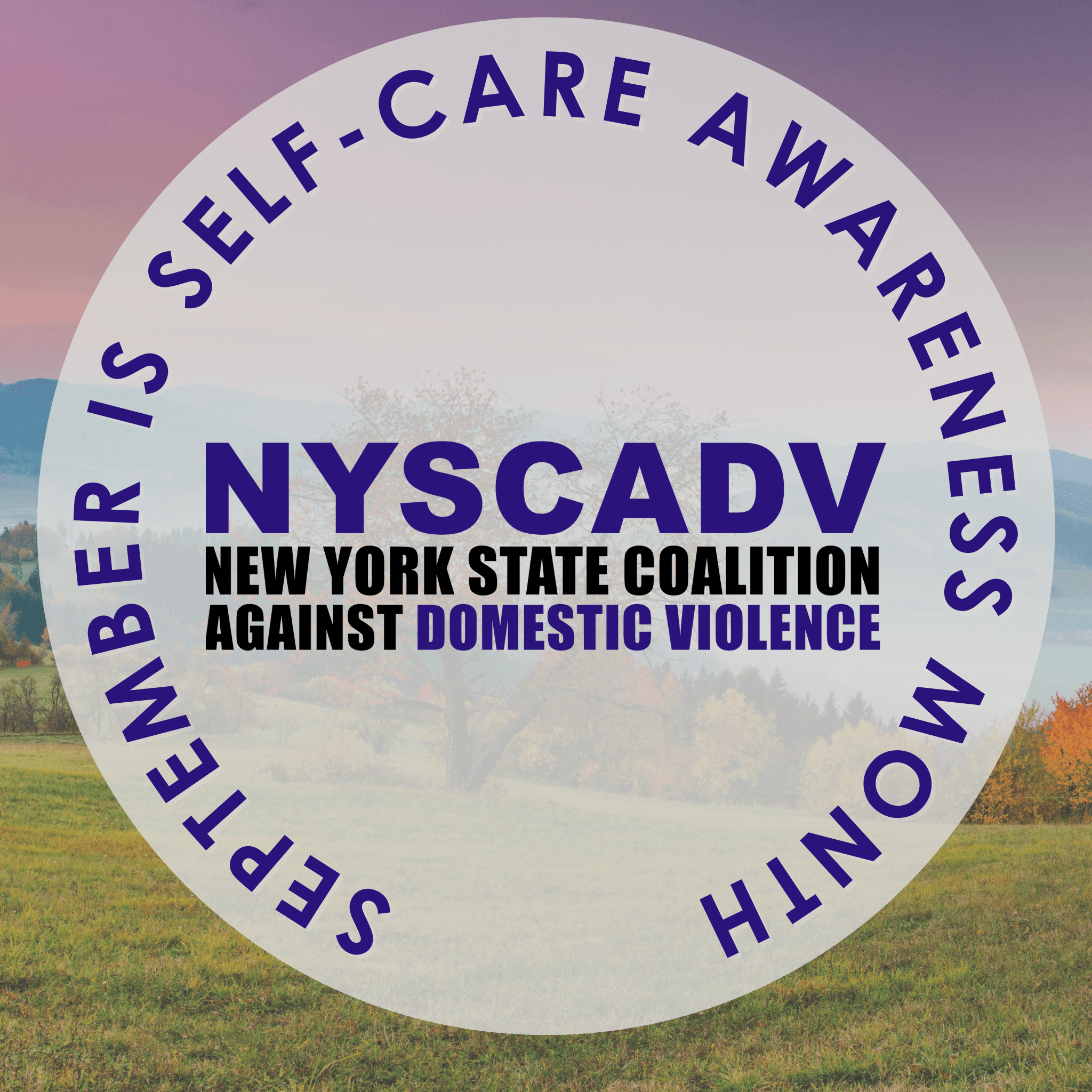
September marks National Self-Care Awareness Month, a time to recognize and celebrate the tireless efforts of advocates and programs dedicated to supporting survivors of domestic violence, sexual violence, and crime. Advocates work diligently to provide survivors with essential services while prioritizing their self-care and well-being. Acknowledging their challenges and establishing healthy habits to sustain their work and themselves is crucial.
Advocates working within the realms of domestic violence, sexual violence, and crime victim advocacy often confront organizational and individual trauma, burnout, and compassion fatigue due to the emotionally demanding nature of their work. The need for self-care extends beyond personal well-being – it's a cornerstone of building a sustainable work-life balance and fostering a supportive work environment at both the individual and organizational levels.
Advocates are uniquely susceptible to organizational trauma due to the intense nature of the work. The organizational culture itself can amplify this intensity through the demands of the workload and communication dynamics. NYSCADV acknowledges the need for strategies to build resilience against this trauma and manage its effects when it arises. Factors such as a strong organizational identity, positive leadership, effective structures, and connections with peer agencies may be used as tools to safeguard an organization's well-being.
We recognize the significance of the work of advocates and endeavor provide resources to fortify their resilience, wellness and self-care practices. NYSCADV has meticulously curated an assortment of resources, ranging from webinars to toolkits. These materials are thoughtfully designed to assist advocates in navigating the challenges they encounter, fostering their well-being, and enriching the quality of their work.
A selection of these resources includes:
- NRCDV's Dealing with Loss and Uncertainty Webinar Series: This series offers insights into managing grief, and trauma, and building resilience, providing practical skills to integrate self-compassion into daily life.
- NRCDV's #Care4Advocates: COVID-19 Resources to Support Advocates' Well-being: Acknowledging the challenges posed by the pandemic, this resource compiles materials to support advocates' emotional, mental, physical, and spiritual well-being.
- CONNECT's Toolkit on Burnout and Vicarious Trauma: Addressing the impact of trauma, this toolkit focuses on self-care and healing, tailored to organizers combating racism, police brutality, and various movements.
- Self-Care for Advocates: A non-profit organization that promotes self-care and well-being among anti-violence advocates and prevents work-related stress and exhaustion.
- Office for Victims of Crime's Vicarious Trauma Toolkit: A comprehensive resource designed to help organizations become vicarious trauma-informed, supporting staff exposed to traumatic experiences.
Click here to view the self-care toolkit.
As the fight against domestic violence, sexual violence, and violence continues, supporting advocates and prioritizing their self-care cannot be overstated. These resources serve as a testament to the dedication of NYSCADV and other organizations in fostering a holistic approach that recognizes the need for resilience, well-being, and sustainability in this vital advocacy work. The self-care of advocates is not just an individual endeavor but a collective responsibility, ensuring they can continue making a meaningful impact on the lives of survivors and contributing to a safer, more compassionate world.


